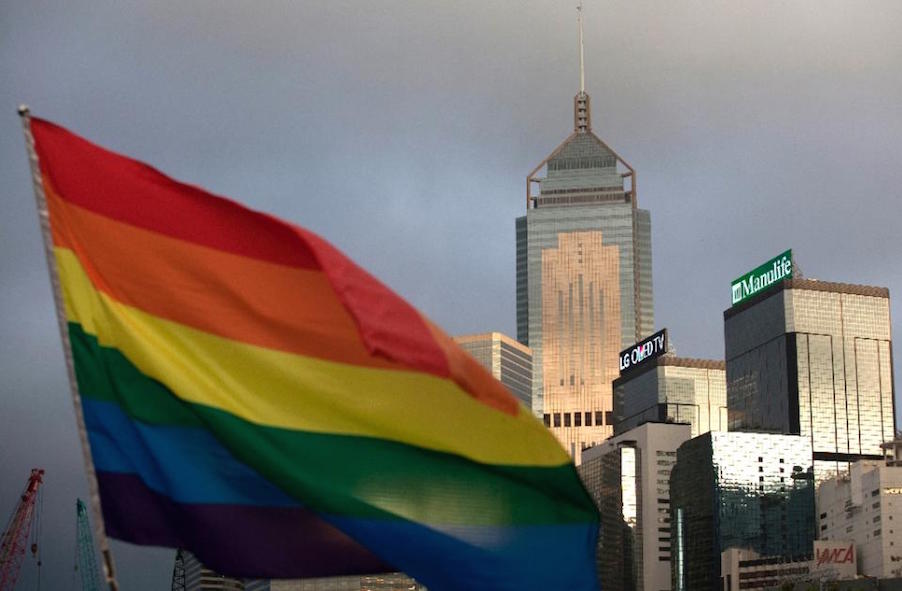It’s official, starting tomorrow Hong Kong will recognize overseas same-sex partnerships when granting dependent visas.
Announced in a statement, the policy, a massive victory for LGBT rights in the city, follows on from legal action by a British lesbian, identified only QT, who won a landmark case in July, with the Court of Final Appeal ruling the Immigration Department was wrong to deny her a dependent visa after her partner moved to the city to work.
Under the revised policy, anyone who has entered either a same-sex civil partnership, same-sex civil union, same-sex marriage, opposite-sex civil partnership or opposite-sex civil union outside Hong Kong will be eligible to apply as a dependent if they meet the “normal immigration requirements.”
The announcement adds that those applying for a dependent visa need to provide “reasonable proof of a genuine relationship between the applicant and the sponsor.”
They must also show that there is “no known record to the detriment of the applicant,” and that the sponsor is able to support the applicant and provide suitable accommodation for them.
The government’s announcement today does not mean that same-sex marriage will be legalized in Hong Kong.
Officials stressed that the revision concerned the immigration policy on applications for non-local dependents only.
“As the CFA recognised in its judgment in the QT case, a valid marriage under Hong Kong law is heterosexual and monogamous and is not a status open to couples of the same sex. The revision has nothing to do with legal recognition of same-sex civil partnership, same-sex civil union, ‘same-sex marriage’, opposite-sex civil partnership or opposite-sex civil union in Hong Kong. Nor should there be any expectation of such plan by the Government. The revision does not compromise the Government’s position in any legal proceedings,” the statement read.
Though it finished in July, the landmark case dates back to 2011, when QT was denied a dependent visa by immigration authorities after moving to Hong Kong with her partner, SS, who had taken up a job in the city.
The pair had entered a UK civil partnership together. QT had initially lost a judicial review over the matter in March 2016. She went on to win an appeal in September, before the government challenged the ruling.
The case attracted public attention and support. Twelve multinational financial institutions had sought to join the legal challenge against the government’s policy on LGBT rights, though the court did not allow their request.
The court ruled there was “no rational connection” between the government’s past policy of restricting dependent visas to heterosexual couples and its stated aim of tracking talent to the city.




